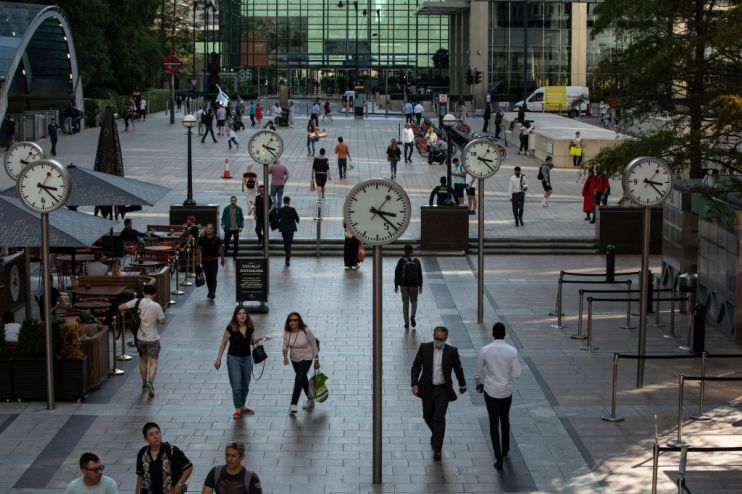London is the toughest place to be an entrepreneur, report finds

London is the toughest place in the UK to be an entrepreneur due to a huge wealth disparity and a higher cost of living, according to a new report.
The government-funded British Business Bank (BBB) and management consulting firm Oliver Wyman have today published a report into the huge impact ethnic and economic background as well as gender and geography has on business outcomes.
The report found that just 71 per cent of London business owners reported a profit in 2019 – no other region in the UK reported a figure below 80 per cent. While a fifth of entrepreneurs reported a decline in revenue last year, six per cent higher than the UK average.
The higher cost of living and operating in the capital, as well as a stark disparity between poorer and wealthier neighbourhoods go some way in explaining the findings.
The higher density of startups based in London and tougher market competition make the ecosystem all the more difficult.
Entrepreneurs with an ethnic minority background face ‘systemic’ issues
The report also laid out the significant disparities in business outcomes for Black, Asian and other ethnic minority entrepreneurs.
It found that Black entrepreneurs report a median turnover of £25,000 per annum, more than a third less than White business owners.
There is also a significant difference in profits, with more Black business owners failing to make a profit – 28 per cent compared to 16 per cent for White business owners.
The research, which will feed into the Commission on Race and Ethnic Disparities, found that the disparities persist despite Black, Asian and other ethnic minority business owners investing more time and money. And entrepreneurs in these groups also typically have a higher level of education than their White counterparts.
“Such differences in business outcomes can therefore only be explained by a host of interconnected and systemic factors”, the BBB said.
Among these issues, such as access to finance and social capital, is the under-representation of certain ethnic groups among managers, directors and officials in the workplace.
Roianne Nedd, global head of inclusion and diversity at Oliver Wyman said: “What should be a level playing field is littered with obstacles, many of which are products of a complex system of racial and gender disadvantage, underpinned by the pervasive impact of wealth and location.”
UK corporates push for greater diversity
There has been growing momentum among the UK’s biggest corporates in tackling the glaring lack of diversity at the top of the firms.
Earlier this month one of Britain’s biggest institutional investors – Legal and General iNvestment Management – wrote to all FTSE 100 firms saying it expects them to have appointed at least one BAMe director by 2022.
And Natwest is the latest company to commit to boosting the number of its Black staff in senior roles as it seeks to shake up its image. The bank has pledged to increase the number from one per cent to three part, to bring it in line with the Black population in England and Wales.
But the findings of today’s report shows little is being done to tackle the lack of diversity among the startup community.